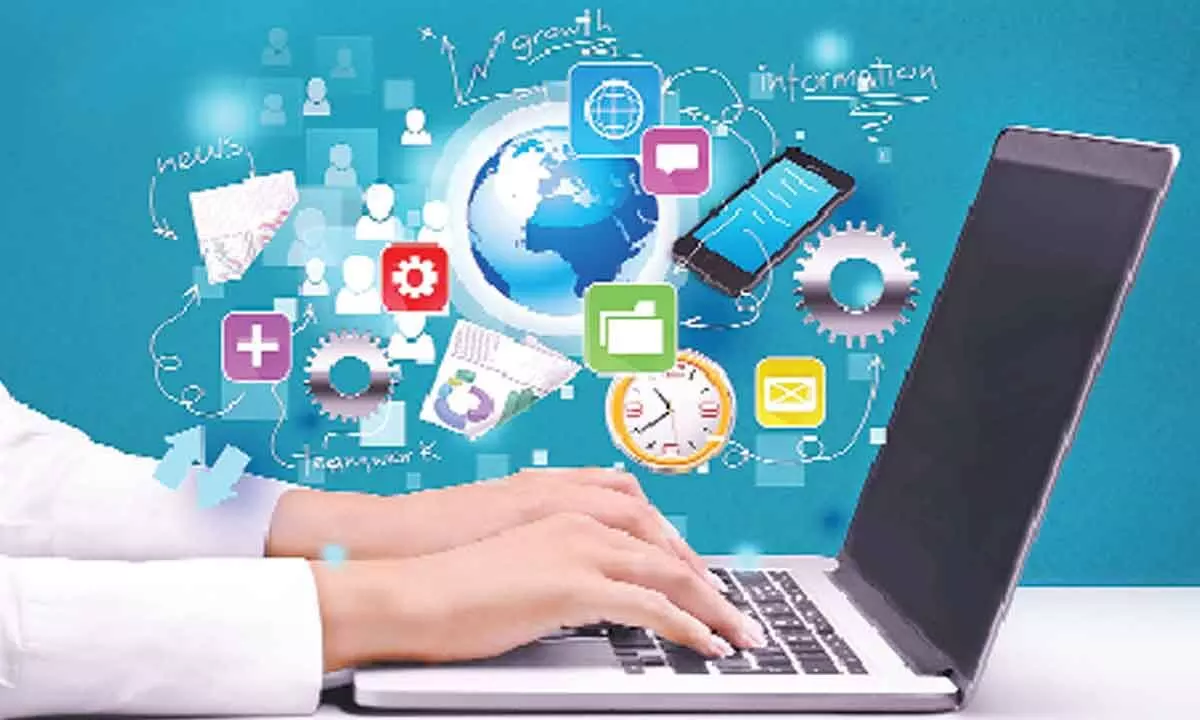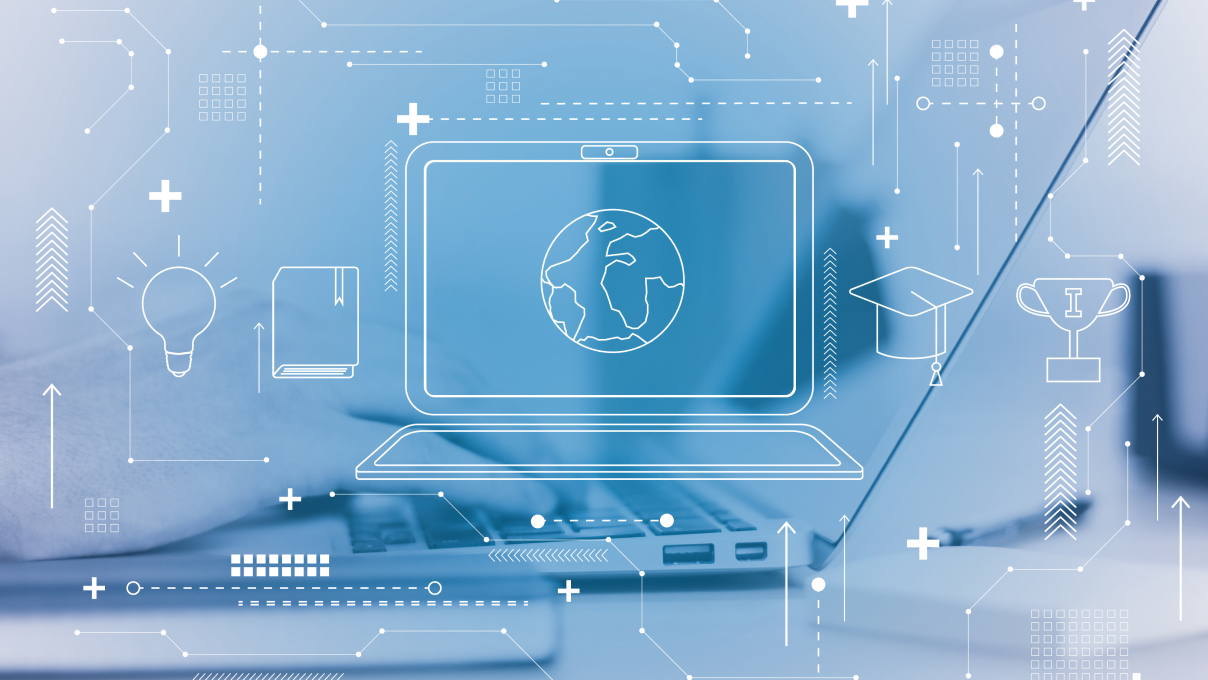Unlock New Opportunities in Education with Belongings Resources and Insights
Unlock New Opportunities in Education with Belongings Resources and Insights
Blog Article
Innovative Techniques for Enhancing Innovation Education in Today's Learning Environments
The evolving landscape of technology education and learning requires a reevaluation of conventional pedagogical techniques to much better gear up students for the intricacies of the modern-day world. Innovative approaches, such as hands-on understanding experiences and collective project-based campaigns, play an essential duty in connecting theoretical principles with functional applications. Furthermore, the integration of on-line resources and gamification can enhance engagement and inspiration among students. As we check out these methodologies, it comes to be critical to think about how individualized knowing can further enhance the educational experience and cultivate a deeper link between trainees and technology. What might this mean for the future of education and learning?
Hands-On Discovering Experiences
Hands-on learning experiences function as a foundation in modern technology education, efficiently connecting the void between theoretical knowledge and sensible application. These experiential activities enable trainees to engage directly with tools, software application, and modern technology, fostering a deeper understanding of concepts that are typically abstract in standard class setups.
By including hands-on understanding, instructors can facilitate an atmosphere where trainees can experiment, innovate, and troubleshoot. This method not only cultivates technical skills but additionally enhances problem-solving abilities, as students are encouraged to challenge real-world obstacles. Hands-on experiences commonly lead to boosted trainee inspiration and engagement, as learners see the prompt significance of their research studies to practical circumstances.
In addition, such experiences can take different types, including lab experiments, simulations, and interactive tasks, all of which satisfy various discovering styles. The assimilation of hands-on discovering in technology education additionally promotes retention of details, as trainees are most likely to keep in mind concepts they have actually actively worked with instead of passively observed. In general, hands-on experiences are important in preparing pupils for the complexities of the modern-day technological landscape, outfitting them with the skills and self-confidence needed to succeed in their future jobs.
Collaborative Project-Based Understanding
Collective project-based understanding equips pupils to interact in teams to deal with facility, real-world problems, promoting essential abilities for the modern-day workforce. This strategy encourages energetic engagement, important thinking, and imagination, as pupils negotiate functions, share duties, and collectively develop remedies. By immersing themselves in tasks that reflect authentic difficulties, students develop a deeper understanding of the subject while sharpening their ability to connect and team up effectively.
In innovation education and learning, joint project-based learning can manifest with interdisciplinary jobs that include aspects of layout, design, and coding. Pupils might collaborate to create a mobile application or design a prototype that addresses a societal problem, needing them to incorporate different technological ideas and tools. This experiential discovering not only improves technical effectiveness yet additionally grows analytic abilities and versatility.
Furthermore, such collaborative undertakings advertise a sense of community amongst trainees, fostering social connections and a shared dedication to their job end results. As they navigate the complexities of synergy, trainees learn to value diverse viewpoints and take advantage of each other's toughness, preparing them for future expert atmospheres where collaboration is crucial. Ultimately, joint project-based discovering is a cornerstone of reliable technology education and learning.
Combination of Online Resources

The assimilation of on the internet sources helps with access to current info and industry criteria, which is crucial in a quickly developing technical landscape. By leveraging systems such as MOOCs (Huge Open Online Courses) and specialized instructional sites, educators can supplement standard educational programs with real-world applications, making it possible for students to engage with current fads and methods.

Inevitably, the thoughtful combination of on the internet resources in technology education promotes a more vibrant, appealing, and appropriate knowing experience, equipping pupils with the abilities and knowledge necessary to grow in a significantly digital world.
Gamification Strategies in Education
The incorporation of gamification strategies in education represents an effective helpful hints method to further involve students and boost their discovering experiences. By integrating game-like components such as points, badges, and leaderboards right into the curriculum, instructors can promote moved here motivation and promote a sense of competitors among students. These techniques motivate participation and perseverance, particularly in topics that might otherwise show up daunting.
Gamification can take various kinds, including interactive quizzes, collaborative jobs, and immersive simulations, which permit trainees to use their knowledge in sensible contexts. This interactive approach not just makes finding out satisfying yet also enhances essential principles through repeating and prompt feedback. As trainees progression, they can track their achievements, promoting a development attitude and a feeling of accomplishment.
Additionally, gamification facilitates separated guideline by catering to diverse discovering designs and rates. Students are equipped to take possession of their understanding trip, enabling a much more tailored educational experience. In an increasingly digital world, using gamification methods can link the void in between traditional education and modern technical improvements, inevitably preparing trainees for future difficulties.
Personalized Knowing Approaches
Personalized learning techniques are progressively identified as crucial for addressing the diverse needs and choices of pupils in today's instructional landscape. These approaches encourage students by customizing academic experiences to private rate of interests, staminas, and learning paces, thereby enhancing engagement and retention.
In technology education and learning, individualized discovering can take different types, including flexible understanding innovations, personalized curricula, and project-based learning customized to pupil rate of interests. Systems that use synthetic knowledge can examine a student's efficiency data to advise certain resources or tasks that line up with their learning design.
Additionally, personalized discovering encourages pupil agency, permitting learners to establish goals and choose paths that resonate with their desires (Education). This freedom fosters a deeper link to the material, inevitably resulting in boosted outcomes
Educators play a vital role in this procedure, using formative analyses to monitor development and readjust instruction appropriately. Electronic portfolios and collaborative devices can also promote personalized learning, permitting pupils to assess their trips and display their success.
Final Thought
To conclude, boosting modern technology education in contemporary discovering settings necessitates the implementation of ingenious approaches that focus on hands-on learning, collective tasks, and the assimilation of on the internet resources. Gamification strategies offer to increase engagement and motivation, while customized discovering techniques suit specific strengths and foster pupil company. Jointly, these techniques produce a dynamic academic experience that prepares trainees for real-world difficulties and cultivates vital skills for future success in a quickly evolving technical landscape.
As we explore these methods, it ends up being necessary to take into consideration exactly how personalized knowing can further improve the educational experience and foster a much deeper link in between trainees and modern technology. The combination of hands-on understanding in innovation education and learning additionally advertises retention of info, as students are more likely to bear in mind principles they have proactively worked with instead than passively observed.The incorporation of gamification methods in education and learning represents a powerful approach to further engage students and enhance their knowing experiences. Pupils are empowered to take ownership of their learning trip, enabling for an extra individualized academic experience.In verdict, improving technology education and learning in contemporary understanding atmospheres necessitates the application of innovative approaches that prioritize hands-on understanding, collective tasks, and the combination of on-line resources.
Report this page